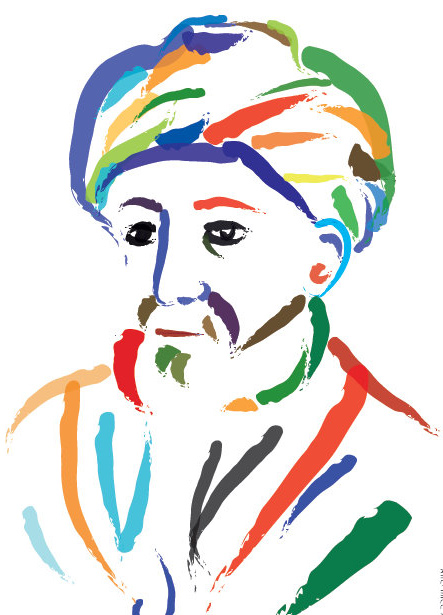
|
Rabbi Moses ben Maimon, also known as Rambam or HaRambam is by far the most celebrated and resplendent figure in post-biblical Jewish history. His fame is a function of the scope, quality and originality of his many writings and the legacy of his leadership. He was born in Cordoba, Spain 1138 and died in Cairo, Egypt 1204.
Any attempt to describe the man, and the impact he had on Judaism and Jewish culture would ring hagiographic. Therefore, the measured words of the late Rabbi Dr. Isadore Twersky, quoted from the first pages of his seminal work “Introduction to the Code of Maimonides (Mishneh Torah), have been selected to portray the man, the leader, and rabbinic figure of Rambam.
“Rabbi Moses ben Maimon, known in Hebrew literature as RaMBaM and in western culture since the renaissance as Maimonides, was a prolific author of amazing vigor and precision, of intellectual, moral and religious force of analytical sharpness and aesthetic delicacy. This is well known and generally appreciated often with a dash of gratuitous hyperbole. In truth his reputation needs no inflation or exaggeration for his stature is nearly sui generis and his commanding influence has been almost universally recognized. His literary oeuvre was not only remarkably comprehensive but also endlessly repercussive. He wrote epoch-making works in the central areas of Halakha and religious philosophy – an achievement that is unquestionably, almost overpoweringly, characterized by monumentality, using the term very literally. His works representing an unprecedented conjunction of halakhic authority and philosophic prestige, were extensively studied, meticulously annotated, frequently translated and intensively interpreted. Their influence, direct as well as indirect reflected through many works in various genres by a host of authors, was global. His mighty historical image assumes heroic proportions rather early in his posthumous career, and it is this heroic figure which dominates the stage.”
Virtually all of Rambam’s works have been translated into every language spoken today. God, according to Rambam is described in the Bible in ways that should inspire us to emulate. Our goal as human beings is to be compassionate, loving and just. Rambam’s own life is characterized by his personal commitment to the community. In a famous letter he wrote to his translator Samuel ibn Tibbon Rambam describes in his own words his daily routine:
“…I live in Fostat and the Sultan resides in Cairo; these two places are two Shabbath limits distance from each other. My duties to the Sultan are very heavy. I am obligated to visit him every day, early in the morning, and when he, any of his children or any one of his concubines are indisposed. I cannot leave Cairo but must stay during most of the day in the palace. It also frequently happens that one or two of the officers fall sick and I must attend to their healing. Hence, as a rule, everyday, in the morning I go to Cairo. Even if nothing unusual happens there, I do not return to Fostat until the afternoon. Then I am famished, but I find my antechambers filled with people, both Jews and gentiles, nobles and common people, judges and policemen, friends and enemies – a mixed multitude who await the time of my return.
I dismount from my animal, wash my hands, and go forth to my patients and entreat them to bear with me while I partake of some light refreshment, the only meal I eat in twenty-four hours. Then I go to attend to my patients and write prescriptions and directions for their ailments. Patients come in and out until nightfall, and sometimes even, as the Torah is my faith, until two hours or more into the night. I converse with them and prescribe for them even while lying down from sheer fatigue. When night falls I am so exhausted I can hardly speak.
As a result of this schedule, no Israelite can converse with or befriend me except on the Shabbath. On that day, the whole congregation, or at least the majority, comes to me after the morning services, when I instruct them regarding matter of the proceeding week. We study a little together until noon when they depart. Some of them return and study with me in the afternoon until evening services.
In this manner, I spend the days. I have here related to you only part of what you would see if you were to visit me…”
|

